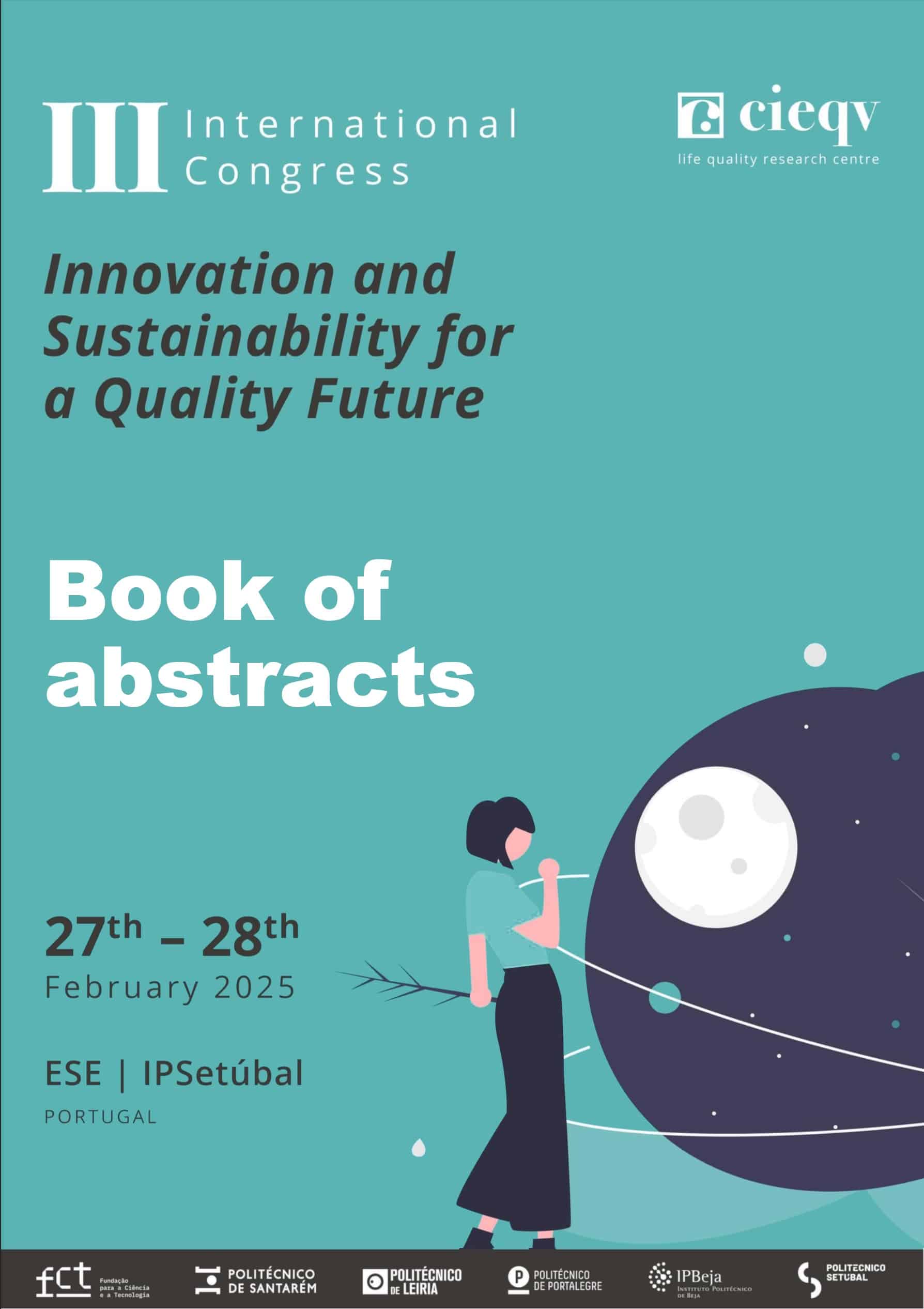Programa
Go Back to English version
27 Fevereiro 2025
09:30 – Sessão de abertura
10:30 – Conferência 1| José Rodrigues – Life quality
Moderador: Maria Inês Faria
11:30 – INTERVALO e Sessões de apresentação de posters 1
12:00 – Workshops:
- Vanda Andrade – Análise de dados quantitativos – Testes não paramétricas
- Maria Gabriela de Oliveira Lima Basto de Lima e Ana Teresa da Cunha Machado Ribeiro – Análise Sensorial de alimentos – Treino para provadores
- José Amoroso – Erasmus + sport example
- Dina Rocha – Dados de Investigação: Gestão, Desafios e Boas Práticas
- Lucília Nunes – A ética e a Investigação
- Teresa Magalhães – Inteligência Artificial na Saúde – Impulsionando a qualidade de vida sustentável
13:00 – Almoço Livre
14:30 – Conferência 2 | Francisco Tomás Gonzalez-Fernández – Monitoring and Managing Training Load: Key to Boosting Emotional and Social Wellbeing in Youth Soccer Players
Moderador: Renato Fernandes
Sessões de Comunicações livres
15:30 – INTERVALO e Sessões de apresentação de posters 2
16:00 – Conferência 3 | José Amendoeira – Determinantes sociais e indicadores de saúde para a qualidade de vida
Moderador: Marta Rosa
Sessões de Comunicações livres
17:00 – Conferência 4| José Amoroso – Introdução do disco voador nas escolas
17:30 – Programa cultural e Jantar do congresso
28 Fevereiro 2025
09:00 – Conferência 5| Pedro Ferreira – The challenges of integrating emerging technologies in educational contexts: implications for research and teacher training
Moderador: Marisa Correia
Sessões de Comunicações livres
10:00 – INTERVALO
10:30 – Conferência 6 | Maria José Sousa – Valorização de recursos humanos na era digital
Moderador: Tiago Abalroado
Sessões de Comunicações livres
11:30 – Conferência 7 | Cristina Isabel de Victoria Pereira Amaro da Costa – Agroecological perspectives from the past to the present: agricultural systems and biocultural knowledge as creators of food landscapes
Moderador: Maria Céu Godinho
Sessões de Comunicações livres
12:30 – Sessão de Encerramento
13:00 – Almoço Livre
15:00 – Reunião com o Comité de avaliação externa e membros integrados do CIEQV
Nota: As comunicações podem ser efetuadas em inglês, português ou espanhol.
Oradores

José de Jesus Fernandes Rodrigues
Instituto Politécnico de Santarém, Escola Superior de Desporto de Rio Maior, Portugal
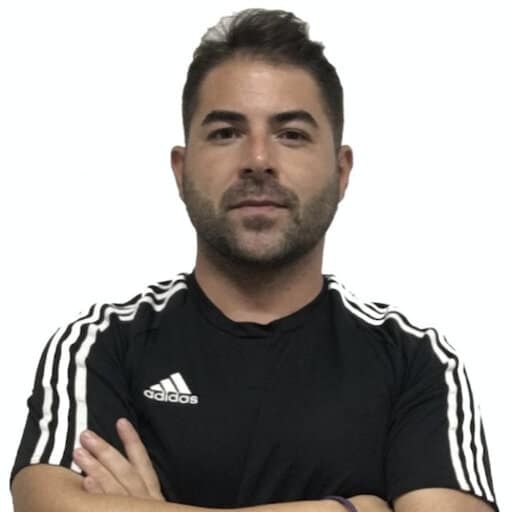
Francisco Tomás Gonzalez-Fernández
Universidade de Granada, Espanha

José Amendoeira
Instituto Politécnico de Santarém, Escola Superior Saúde, Portugal
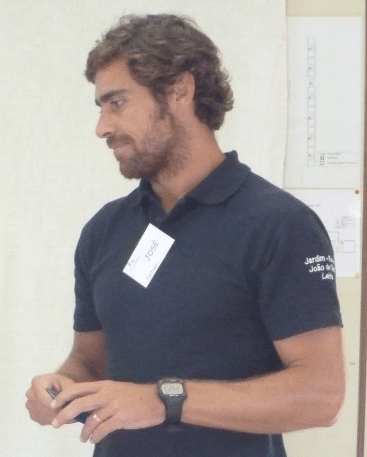
José Amoroso
Centro de Investigação em Qualidade de Vida, Portugal
Comunicações
Livro de Resumos

José de Jesus Fernandes Rodrigues
Full Professor in Instituto Politécnico de Santarém Escola Superior de Desporto de Rio Maior, Researcher in CIEQV – Quality of Life Research Centre, Member in Scientific Council in Instituto Politécnico de Santarém Escola Superior de Desporto de Rio Maior, President in REDESPP – Network of Schools in Sport Education in Polytechincs Institutes, Member in General Council in Instituto Politécnico do Porto and President in SCPD – Sport Pedagogy Scientific Society .
Completed the Título de Agregado in Sport Sciences – Sport Pedagogy in 2002 by Universidade de Trás-os-Montes e Alto Douro, Doutoramento in Human Kinetics – Sport Sciences in 1996 by Universidade de Lisboa Faculdade de Motricidade Humana, Mestrado in Educational Sciences – Methodology of Physical Education in 1990 by Universidade de Lisboa Faculdade de Motricidade Humana, Licenciatura in Physical Education in 1983 by Universidade de Lisboa Faculdade de Motricidade Humana and Bacharelato in Physical Education in 1981 by Universidade de Lisboa Faculdade de Motricidade Humana.
Published 115 articles in journals. Has 34 section(s) of books and 7 book(s). Organized and Participated in over 100 event(s). Supervised 9 PhD thesis(es) e co-supervised 3. Supervised 19 MSc dissertation(s). Has received 17 awards and/or honors. Participates and/or participated as Principal investigator in 11 project(s) and Researcher in 16 project(s). Works in Sport Pedagogy on Health Sciences with emphasis on Sport and Fitness Sciences, Social Sciences with emphasis on Psychology, Social Sciences with emphasis on Media and Communications and Social Sciences with emphasis on Educational Sciences. In their professional activities interacted with 260 collaborator(s) co-authorship of scientific papers. In his curriculum Ciência Vitae the most frequent terms in the context of scientific, technological and artistic-cultural output are: – People: Athletes; Children; Fitness Instructors; Sport Coaches; Sport Directors; Sport Managers; – Sports: Basketball; Fitness Exercise; Football; Handball; Nature Sports; Paralympics Sports; Physical Activity; Physical Education; Swimming; Volleyball; – Education: Coach Education; Competences and Skills; Education Models; Internship; Life styles Promotion; Professional Assessment; Professional Career; Professional Intervention;Quality of Life Education; – Research Variables: Behavior Observation; Behavior Patterns; Coach Behavior; Competition; Coping; Decisions; Depression; Evaluation Criteria; Expectations; Food chain; History; Instruction; Labor; Non-verbal and verbal Communication; Pedagogical Feedback; Pedagogical Intervention; Planning; Technical analysis; Thoughts.

Professor in the Dep. of Physical Education and Sports at the Faculty of Sport Sciences, University of Granada, Spain.
His research interests encompass a range of critical areas in sports science, including: i) Cognitive performance in sports; ii) Youth sports performance; iii) Decision-making processes and iv) Soccer. Francisco Tomás is dedicated to advancing knowledge in these fields and contributing to the development of future athletes.

José Amendoeira
Research is my main goal, searching for more actual evidence in the educational field of Nursing Science and Clinical Intervention, promoting the evidence based practice. The internationalization is a strong goal in my activity. The oportunity to work with EMECC Nursing with nurses from all around the world! At last, but not the least my activity with PhD students from the great Nursing PhD programme of Portuguese Catholic University.

José Amoroso
Contributions to Science and Society
a) New Ideas, Tools, and Knowledge
Since discovering Ultimate in 2000, I have actively promoted sport nationally and internationally, focusing on its unique features aligned with EU educational pillars.
Key Milestones:
- Books: Published the first disc sports manual in 2016, promoting school integration despite political challenges. The 2019 edition gained WFDF’s support, leading to translations into English (2020), Croatian (2021), Chinese, and other languages.
- Wheelchair Ultimate: Authored the first Wheelchair Ultimate book (2021), leading to the first World Championship in 2023.
- Research: Focused on “Spirit of the Game” (SOTG), emphasizing self-refereeing even in world championships.
Global Contributions:
- Education and Ethics: Portuguese Sports Ethics Ambassador since 2018; curriculum validation team member in Cape Verde, integrating Ultimate into its 2024 PE curriculum.
- European Projects: Led multiple Comenius and Erasmus projects, including the VIBES virtual reality project, enhancing knowledge exchange and building networks.
- WFDF Manual for Kindergartens: Coordinating a global disc sports manual for preschoolers, with planned translations into six languages.
b) Training and Career Development
Sharing knowledge has driven my career. Since my PhD, I’ve collaborated with international researchers, including senior scholars like Jay Coakley. I currently lead two research teams and participate in two research lines.
Project Leadership:
- Erasmus+ Sport Project: Leading the PRO-Values initiative promoting disc sports across Europe with partners from Belgium, Ukraine, Austria, Cyprus, and Portugal. Supported by multiple European and international federations.
- Research Collaboration: Attracting master’s and PhD students while fostering research teams focused on Ultimate’s social and educational dimensions.
c) Contributions to the Scientific Community
2023 was a milestone year for scientific dissemination, marked by extensive conference and seminar participation (see ORCID). My works have explored Ultimate’s unique features, including mixed-gender play, self-refereeing, and open divisions where all genders compete together.
Research Highlights:
- Ultimate’s Social Impact: DOI: 10.3390/youth3010028
- Self-refereeing and Fair Play: DOI: 10.3390/sports10120197
- Communication in Sport Teams: DOI: 10.3390/socsci10080300
- Teamwork in Sport Psychology: DOI: 10.3389/fpsyg.2021.712904
Future research will expand into disciplines like GUTS, Freestyle, Disc Golf, and Double Disc Court.
d) Contributions to Society
The creation and dissemination of disc sports have been central to my career:
- Community Building: Founded Portugal’s largest disc sports club in 2012.
- Educational Outreach: Trained 500+ PE teachers, distributed thousands of discs, and donated textbooks to schools.
- Social Impact: Introduced Ultimate in Cape Verde and Madeira’s schools, reaching every student. Partnered with public and private entities for funding and material distribution.
Scientific Production and Selected Activities
Publishing manuals in 2016 and 2019 was pivotal for spreading disc sports in schools and beyond. These works helped PE teachers integrate the sport into their classes by emphasizing core principles like self-refereeing, gender equity, and the “Spirit of the Game.”
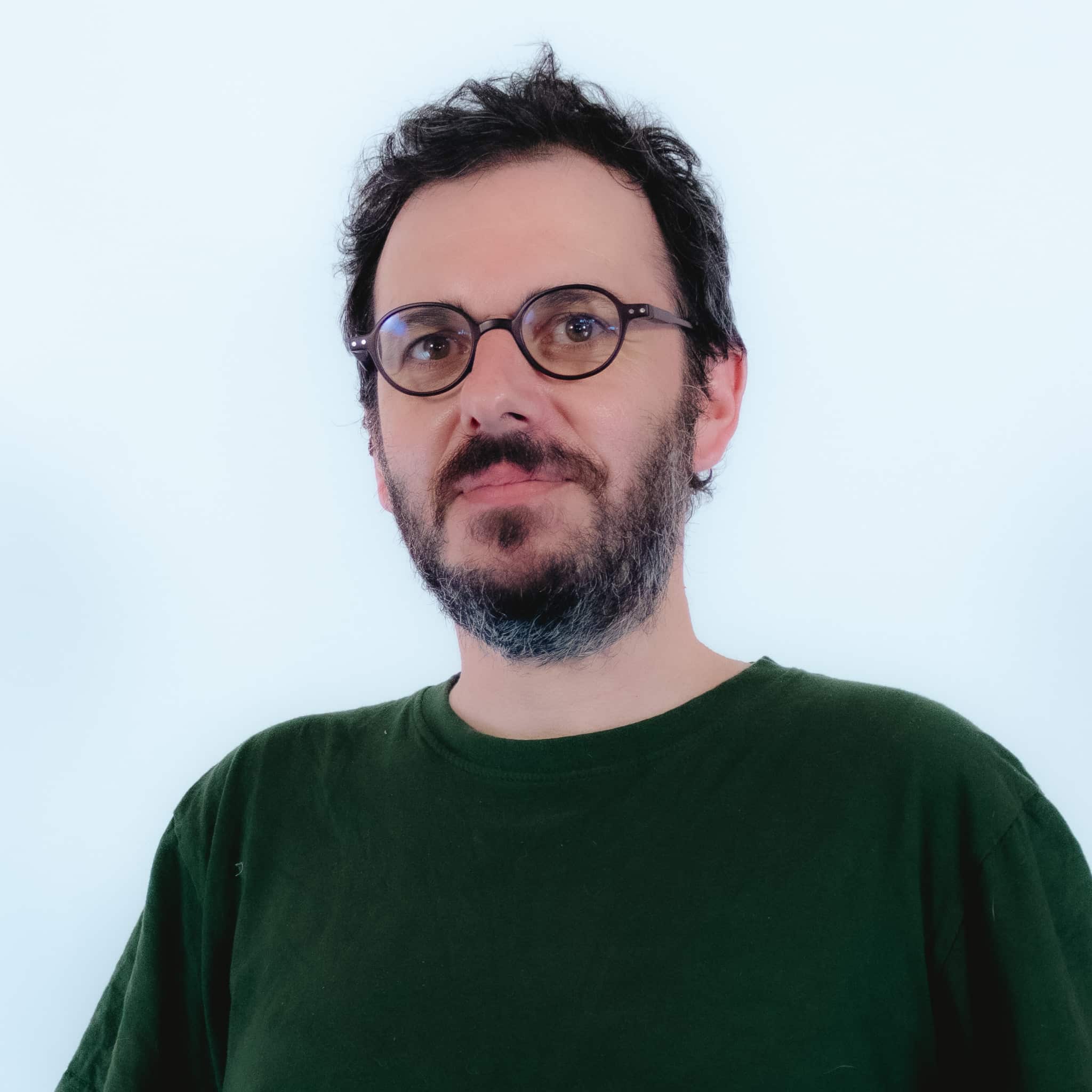
Pedro Ferreira
Pedro D. Ferreira is an Associate Professor at the University of Porto and a Center for Educational Research and Intervention (CIIE) member. He obtained his PhD in Psychology from the same University in 2007.
He has been teaching and researching at the Faculty of Psychology and Educational Sciences since 2009. Although he has primarily dealt with issues of civic and political participation of young people and adults and their implications for political education and political development, he has more recently broadened his interest and focus, researching the ways in which digital contexts and technologies are relevant to the construction and practices of citizenship of diverse audiences, including children, young people, adults, and older adults. He has participated in several nationally and internationally funded research projects, including PIDOP – Processes Influencing Democratic Ownership and Participation (2009-2012, FP7), CATCH-EyoU – Constructing AcTive CitizensHip with European Youth (2015-2018, H2020), the Study on Political Participation of Young People in Portugal (2020-2021, Calouste Gulbenkian Foundation), the Study on Post-Secondary and Higher Education in Cybersecurity in Portugal (2021-2022, National Cybersecurity Center, CNCS), the Mid-Term Evaluation of the Results of the Active Citizens Program (2022, Bissaya Barreto Foundation and Calouste Gulbenkian Foundation), and the Evaluación de Impacto de un dispositivo de Educación Ciudadana Sobre Gestión de la Diversidad en Organizaciones Sociales y Empresas Iberoamericanas (2021-2023, Organização de Estados Ibero-Americanos, OEI) in the last three of which he held coordinating positions. His coordination experience extends to the projects JoSeES – Serious Games in Higher Education: Impacts, Experiences and Potential (2016-2019, Fundação para a Ciência e Tecnologia, FCT) and the international project DISK – Digital Immigrants Survival Kit (2019-2022, Erasmus+ program). These completed projects show how the intersections between digital technologies and social and educational issues have been affirmed in his career and how he has furthered his national and international recognition. He is currently coordinating the project SCIREARLY – Policies and Practices Based on Scientific Research for Reducing Underachievement and Early School Leaving in Europe (2022-2025, Horizon Europe), a project focused on early school leaving and school success in basic skills, including digital skills, and wellbeing. He is a member of the Ethics Committee of the University of Porto, a member of the Portuguese Society of Educational Sciences (SPCE), a member of Trama Diveroamericana, a network focused on promoting and researching diversity, and the Deputy Secretary General of the Ibero-Latin American Association of Political Psychology (AILPP).
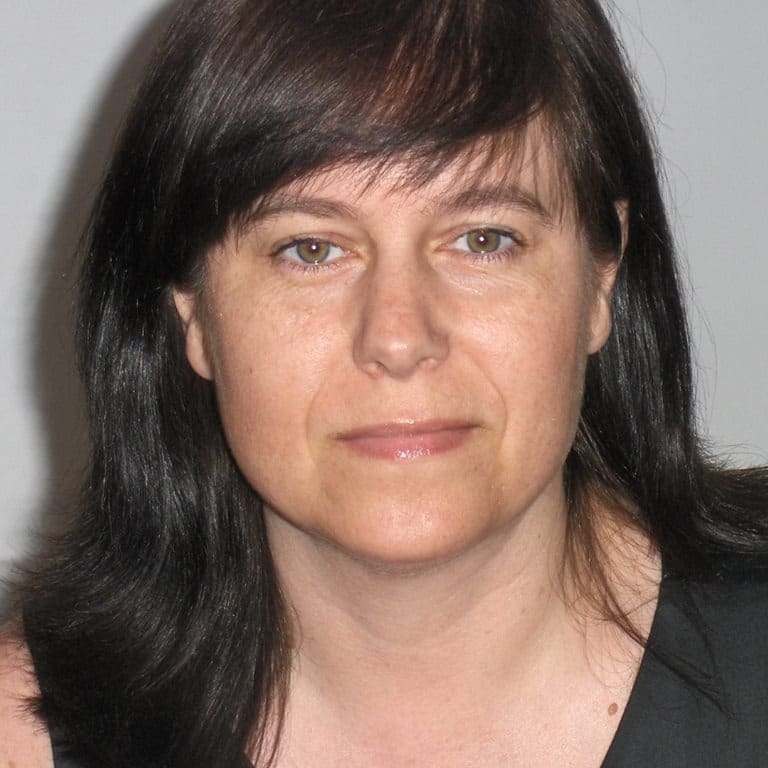
Maria José Sousa
Professor at ISCTE, University Institute of Lisbon, Lisbon, Portugal
Maria José Sousa (Ph.D. in Management) is a University Professor and a research fellow at ISCTE/IUL and of CIEO (Algarve University). Her research interests currently are public policies and political science, innovation and business management issues. She is a best seller author in ICT and People Management and has co-authored over 70 articles and book chapters and published in several scientific journals (e.g. Journal of Business Research, UAIS, Future Generations Computer Systems, Journal of Medical Systems, I. J. of Knowledge, Culture and Change Management, Knowledge Management, Wseas Transactions on Business and Economics, Information Systems Frontiers and others), she has organized and peer-reviewed international conferences. She is also External Expert of COST Association – European Cooperation in Science and Technology.
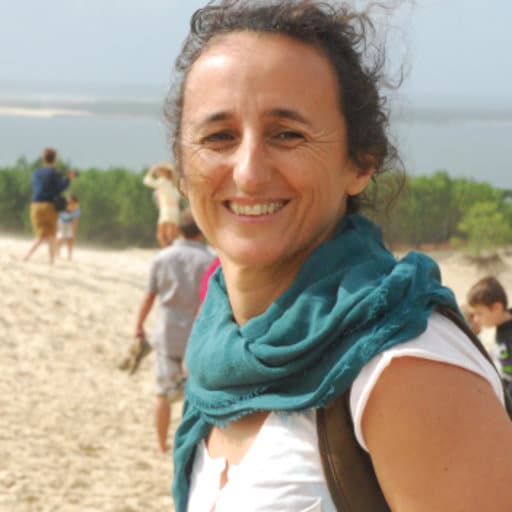
Polytechnic Institute of Viseu, Portugal
Cristina is a teacher, researcher, and beekeeper committed with the agroecology movement in Portugal. With a training in agronomy, she believes the agroecological transition happens through knowledge sharing, from the hands of women and men dedicated to farming to our ‘common table’, and dedicates her life to this cause.
